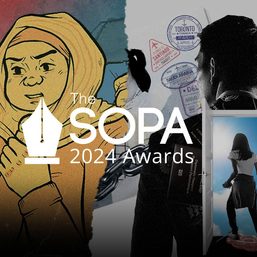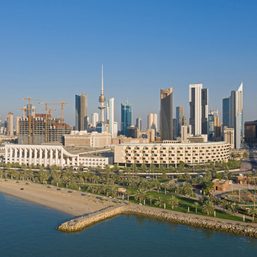SUMMARY
This is AI generated summarization, which may have errors. For context, always refer to the full article.

MANILA, Philippines – The unruly behavior of new immigrants from China has sparked tensions between them and the Chinese Filipino community or “Tsinoys.”
Community leader Teresita Ang-See said the reputation of Tsinoys in the eyes of Filipinos had been “badly affected” by a series of “misbehaving incidents,” where mainlanders were criticized for disrespecting Filipino culture and disregarding Philippine laws.
“It is not exactly a rift, but there is a division. Even in condominiums [in Binondo], you would see posters by Tsinoys telling the new immigrants to leave or to stop misbehaving,” Ang-See said in a phone interview.
Ang-See is a founder of Kaisa Para sa Kaunlaran, a civic rights group that promotes the integration of ethnic Chinese into the Philippine society. Kaisa believes there are at least 1.3 million ethnic Chinese in the country.
About a month ago, the Federation of Filipino Chinese Chamber of Commerce and Industry (FCCCI) issued a strongly-worded statement urging mainlanders to comport themselves in public and respect Filipinos.
The FCCCI’s statement came after Dong Li, a 27-year-old Chinese woman, became infamous online for beating up a cyclist, a motorist, and traffic enforcers on Jupiter Street in Makati in July.
The full-page advertisement was published in different Chinese newspapers in Metro Manila on July 11.
“It’s a warning or a caution from the federation [because there were] several incidents of new immigrants misbehaving. That includes the girl on Jupiter Street,” Ang-See said.
Worrisome cases
She said Dong Li was just one of the many cases that they found worrisome.
Last February, Jinxiong Cai, 35, was arrested for spitting on the floor of a fastfood chain in Manila. Cai uttered “unsavory words” against the security guard who called his attention and damaged two motorcycles on his way out of the establishment.
That same month, Zhou Zhiyi, 50, spat on a Manila cop who arrested him for a traffic violation. In 2019, 23-year-old Jiale Zhang, dubbed as Taho Girl, hurled a tofu drink at another Filipino policeman at an MRT station.
“The Filipinos have been very tolerant and very hospitable to us,” Ang-See said. “These [mainlanders] people don’t really know the Filipino culture.”
Ang-See said geopolitical issues in the South China Sea and the crimes involving mainland Chinese – such as kidnapping, illegal drugs, and prostitution – have contributed to the problem. The local Chinese are also afraid that the controversies surrounding the Philippine Offshore Gaming Operator (POGOs) would further fan the flames of hatred.
“The Tsinoy community is becoming a collateral damage, that’s why extra caution has to be taken. Unless we’re watchful, there might be a backlash,” Ang-See said.
Distinguish Tsinoys from mainlanders
Photojournalist Jilson Tiu and Mary Tan (not her real name), a businesswoman who requested anonymity, support FCCCI’s move to call out mainlanders for their insensitivity and lack of discipline. Tan and Tiu were both born in the Philippines.
“I’m not saying that all mainland Chinese are bad, and I don’t want to be racist against them. But they are hurting the image of the Filipino Chinese community,” Tan said.
“Most Filipinos do not know the distinction between the two groups,” Tiu said.
Tiu experienced the violent side of discrmination while working on a story in 2018. He was taking photos of a building that housed POGO workers when Filipino security guards mauled him.
“They punched me and kicked me to the ground because they thought I was a mainland Chinese and a kidnapper of POGO workers,” Tiu said.
Ang-See said the problem with discrimination is it does not differentiate between the local and the mainland Chinese.
“They won’t really ask if you’re born here or if you’re from China. In their eyes, we are all Chinese,” Tiu said.
According to Ang-See, the FCCCI pointed out in their statement that Tsinoys have painstakingly built a harmonious relationship with the Filipinos over the years. But this might crumble overnight if the attitude of mainlanders is not properly addressed.
The FCCCI was also wary that the mainland Chinese’s behavior, which Filipinos find uncouth, might reflect on them.
Tiu and Tan said these “barumbado (temperamental) attitude” include being too loud and noisy, cutting lines, spitting anywhere, disrespect for personal space, and bullying Filipinos.
“Did you know that many of them call the Philippines a Monkey Country? And that they call Chinese Filipino ‘ampon na aso’ (adopted dogs) because we’re not full-blooded Chinese?” Tiu said.
If Tan would have it her way, she would craft a method that would help Filipinos distinguish Tsinoys from mainlanders.
“Could we please highlight that there are two groups [of Chinese in the Philippines]? We are not the same,” Tan said. – Rappler.com
Add a comment
How does this make you feel?





There are no comments yet. Add your comment to start the conversation.